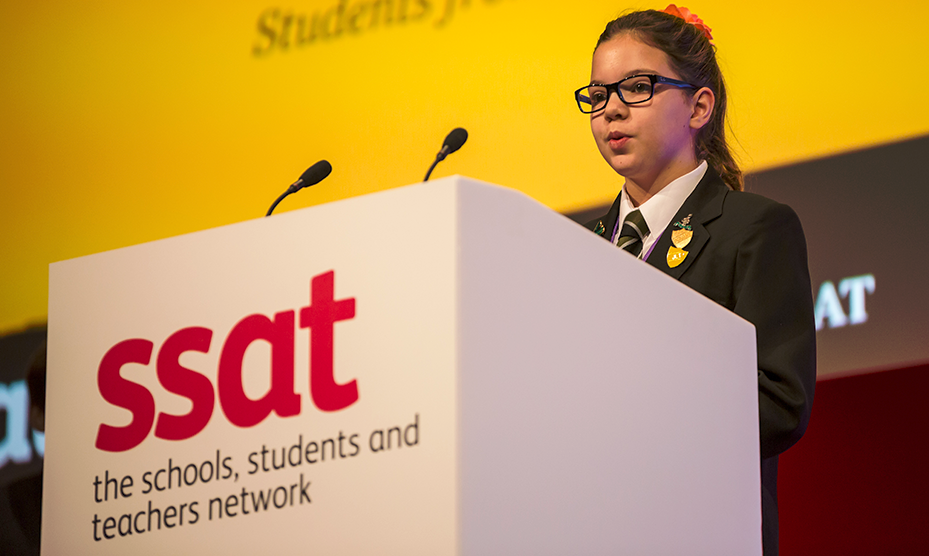
Students chosen by their peers gave the conference delegates valuable observations on the education process from the point of view of the recipient.
Four students from SSAT member schools – Emily, Michael, Megan and Philip – gave a powerful plenary session at the national conference. They had been chosen for this role by fellow students at an SSAT student conference in October.
Emily: teach us about asking questions
Emily told the audience of school leaders she was frustrated by ‘tickbox teaching’. Sometimes it seemed that in school ‘the only thing valued is what can be analysed and measured. Students are treated more like machines than human beings, so we feel dehumanised and uncared for.’
Some of the formulaic approaches lead to students working to target grades of ‘fail’, she said: ‘where’s the sense in that?’ The national curriculum is more about memorising than true learning, ‘and if we ask teachers, “why are we doing this?” they say “because it will be in the exam”.’
Instead, she insisted, ‘our generation should be taught more about asking questions.’
Michael: prioritise soft skills
Deploring the UK countries’ lowly position in international league tables, Michael said that a fifth of all British pupils leave school without having gained essential skills. Reinforcing Emily’s theme, he added that children ask 90% fewer questions at the end of their first year of schooling than at the beginning.
Schools don’t prioritise soft skills, he said, ‘because schools aren’t measured against them.’
Megan: teachers should determine what children learn
Year 7 student Megan noted that it is experiential learning that enables the development of life skills. She felt the restrictive curriculum imposed from the centre was a major source of problems: ‘Shouldn’t teachers have the right, as professionals, to determine what kids should learn?’ They should empower students to challenge themselves. After all, pupils learn 90% more when they are passing on information to others rather than passively listening to it.
Philip: the teacher who creates opportunities
Teachers need to believe in every student, said Philip. ‘Ultimately schools should be places of open possibilities – not working to a construct that judges every student on whether they are “smart” or not.’
He had personal experience of this. ‘I have dyslexia… [but] one teacher believed in me when no-one else would.’ He had been experiencing great difficulty in learning how to write. This teacher discovered a machine that would help, but the authorities would not pay for it, ‘so she bought it for me.’ Use of this machine helped Philip hugely, and he emphasised his gratitude to and respect for that teacher.
These four students received some of the most enthusiastic applause of the whole two-day conference – and the following speaker, professor Tanya Byron, suggested one of them would surely be destined to become secretary of state for education.

Follow SSAT on Twitter: @ssat
View photos from the event here.
